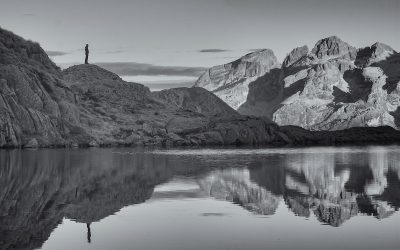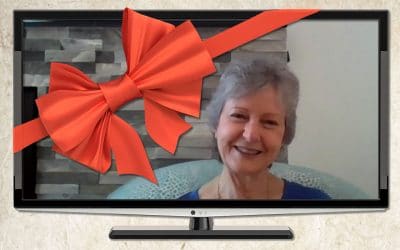“I wish I could show you when you are lonely or in the darkness the astonishing light of your own being.” – Hafiz
Midlife brings insights derived from life experience, education, and working away at jobs that may or may not be fulfilling. At its best, midlife grants us the wisdom gleaned from our mistakes and confirms our talents, our predilections. It allows us to be mentors for the next generation. It validates our sense of purpose and reason for being in the world, particularly if our work contributes to the greater good.
But midlife years can also be challenging if we’ve worked too hard with too little gratification, too little reward, and a loss of that original sense of purpose that got us here in the first place. Marriages can be tested or might end. Nests may empty bringing the loss of parental roles. And, worst case, losses of health, of faith, of elderly family members, of life as we’ve known it…all these losses seem to come in clusters when they happen at midlife.
Loss and change can be powerful triggers for self-reflection: Who am I now? What’s my purpose? What matters? Should I redesign my life style, work style, career direction, etc.? In 2021, an extra layer of loss and change overlays all those existential questions: with less access to cultural and social outlets, and more fear of how this pandemic will play out, what should we do with our time and energy in these strange times? It’s the dilemma formerly known as the midlife crisis, but now made more complicated by Covid.
To sort through this existential angst, it can be extremely enlightening to do a life review and revisit where we’ve been, review the decisions we made, and identify what we want to take into the next stage of our lives. It may be appropriate to keep on the path we’ve been on, which insights from a life review can validate. Or a deep dive into that review can reveal passions and roads not (yet) taken that might be the beacon we crave moving forward.
Mike had always wanted to be a doctor, a pediatrician to be exact. He worked in a group practice straight out of his residency and later developed his own busy private practice, loving the children he treated every day and inventing workshops for parents to keep them informed about cutting-edge research. At the same time, he ran marathons, wrote short stories, and coached his sons’ basketball teams. After 20 years of multitasking, as he approached his 50th birthday, he suddenly lost interest in his work. It felt redundant. He lost patience with parents who didn’t heed his advice, particularly those who denied the reality of Covid and the need for middle-schoolers to be vaccinated. His oldest child graduated and left home. His dad died after years of suffering from cancer. Reeling from all these losses, Mike felt himself losing steam. He refused social gatherings, retreated from his wife and family, lost interest in exercise; instead, he found himself oversleeping and overeating. He knew he was depressed but could see no way out; his family depended on his income.
Nature stepped in and gave him the way out: Mike suffered a mild heart attack, seemingly out of the blue. Treatment required that he take a month off; there was no choice. He handed his practice to a colleague and withdrew from everything. Flat on his back, he listened to audiobooks, meditation tapes, NPR, anything that took his mind away from medicine. His oldest son, knowing Mike loved to write, suggested he pen a memoir. The idea intrigued Mike. He called it “a place to put all my stuff.” But the notion of actually writing it was exhausting. His wife suggested he record the story of his life rather than attempting to write it. She offered a therapist friend as someone who could dialogue through his stories in a nonjudgmental way and provide structure for his memories.
With nothing else to do during his recovery, Mike followed through on the idea. In dialogue, he was able to retrieve memories and stories he’d long forgotten. Surprisingly, the process enlivened him. He was proud of all he’d accomplished, amazed at how much activity he packed into each week of his working life, and somewhat dismayed by how little he took care of himself. The process was revelatory. At the end, he determined to redesign his life: he wanted to sell his practice and be removed from the huge responsibility of so many people’s lives. He wanted to wander trails rather than compete as a runner. He wanted time to write and see where it took him. It surprised him that these changes were always available to him but he seemed to need a crisis to discover these opportunities. Like so many midlifers of his generation, we have to hit a wall in order to wake up.
Bottom line: a life review is not limited to a look back from our “golden years.” It’s a great option for any crossroad along life’s path, particularly if it’s done in dialogue and recorded for future reference.




